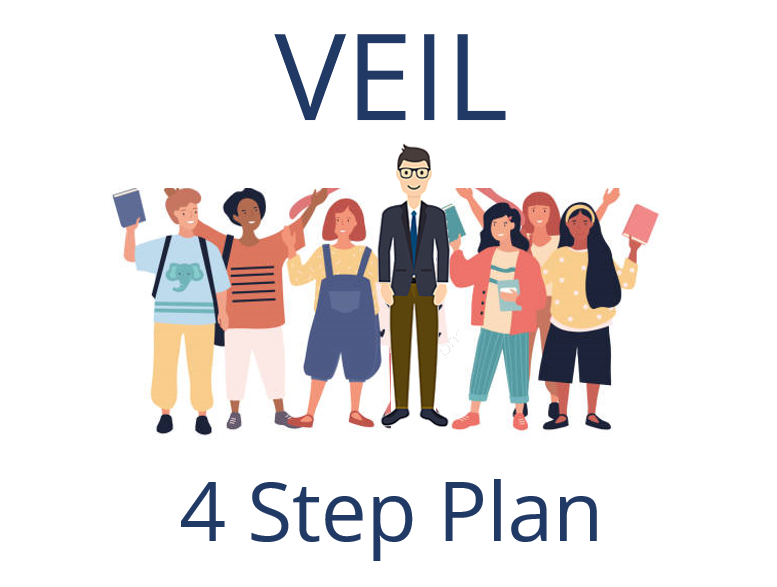

Social Media: It’s Not Narcissism Our Children Are Suffering From
Are young people narcissists? As I watch my 15 year old taken edit and then post her latest selfie it’s tempting to think so. But let’s get beyond opinion to evidence…. Let me share some that STEER has found.
Fours ago STEER conducted research on the impacts of competitive ranking on pupils’ self-regard. In our experiment (with a mixed-gender cohort of 98 Y5 pupils at four UK prep schools) we first measured the ‘Trust of self’ each pupil had. Trust of self is one of the four Affective-Social biases we measure through AS Tracking. It indicates the degree to which a child questions or trusts their own ideas, thoughts and opinions. Across any year group, there are children who instinctively trust themselves (a few probably come to mind!) and others who question themselves. Any cohort will have a range.
We then measured the impact on each child’s self-trust from being exposed to seeing themselves at the top of fictional ranked class competition noticeboard. We wanted to see the effect of being seen to have won compared to their peers. Unsurprisingly, perhaps, the self-trust of pupils who had an instinctively LOW trust of self themselves shot up when they saw their success! (See the left hand pair of columns Figure 1); their instinctively low self-trust was boosted by their success.
What surprised us was that, when this same group was exposed to being seen to come bottom, last in the competition, rather than hide the results (which is what we anticipated) they wanted to tell others about it!
What was equally surprising was the effect of the fictional win on those children who started with an instinctively HIGH trust of self. Our hypothesis was that this visible, ranked success would enhance their sense of superiority and dominance. Their trust of self would rise.
In fact, the results showed the opposite. In Figure 1, you can see the right hand pair of columns showing how the orange column (self-trust post-win) actually falls compared to their instinctive self-trust, shown in the blue column.
 Figure 1.
Figure 1.
How can we explain these unexpected results?
Conventional self-esteem theory fails us, because it predicts that more success leads to more self-esteem, whilst less success leads to the reverse. Instead, these results are explained by a social theory: In adolescence, it is belonging in the group that build self-esteem, not the other way round.
For children with low self-trust, all attention is good attention. Coming last served to gain them attention as did coming first. The strategy to cope with bad news is to promote it, to display it. If I am seen, then I exist. It is being unnoticed that must be avoided.
For children who are already marked apart from their peers (with their higher self-trust), they are potentially threatened by an event (the win) which further marks them out from the group. The fictional victory potentially isolated them further.
Where this most plays out is in the adolescent world of social media. It is wrong to look at the fixation of young people with Instagram and selfies as narcissism. Confident children (with a higher trust of self) post these images not to set themselves apart but to belong to the tribe. They are trying to fit in, to ape the look, to be accepted. Children with a lower self-trust post so that they are not invisible. In fact, they may post images that are self-shaming in order to get attention, explaining why some children seem to show such terrible judgement in what they will post online.
One coda to this experiment…
We also gave the children one other fictional result- a result in which they did not see where they had ranked compared to their peers. Instead, they saw how their race time this year compared to their own previous race times. In other words, they self-ranked against the progress they had made, not against each other.
The result? Both self-trusting and self-questionning children were positively nudged psychologically by this kind of feedback. It improved their self-regulation, reduced anxieties and lowered dys-regulating effects.
There is a great deal of evidence that when pupils benchmark their own success against their own prior performance and set their own goals, they develop greater intrinsic motivation and self-efficacy. Our study is another piece of the jigsaw to support mastery goals.
We can’t take down the noticeboards of social media, but we can design the rankings in our schools to foster healthy performance and adolescent development.
STEER IS DELIGHTED TO ANNOUNCE THE FIRST FT WEEKEND OXFORD LITERARY FESTIVAL EDUCATIONAL LEADERS DAY

Educating the Human Mind in a Robotic Age
April 1st 2019, Oxford
We are delighted to announce the launch of a new whole day event Educating the Human Mind in a Robotic Age. The day is designed for educational leaders and policy makers at the 2019 FT Weekend Oxford Literary Festival. The event will address the changes that are required to educate the human mind in a robotic age.
- The morning session will focus on the effects of social media & digital technologies on the human mind, ability to learn and our mental health.
- The afternoon session will focus on the unique cognitive capabilities required by graduates to succeed in an economy of machine learning and AI.
KEYNOTE SPEAKERS INCLUDE:
• Professor John Bargh, Director of the Automaticity in Cognition, Motivation, and Evaluation Lab at Yale University. John has led global research into cognitive priming for the past three decades. John is uniquely positioned to explain the unconscious impacts of the real and digital environments on the minds of young people.
• Professor Stephen Roberts, Professor of Machine Learning in Information Engineering at the University of Oxford. Stephen has pioneered the development of intelligent algorithms to analyse big datasets. Stephen will clarify both the power and limits of machine learning, identifying the uniquely human cognitive capacities which will remain critical to educate in a robotic age.
• UNESCO ICT in Education sharing global perspectives on technology in education.
• The day will be hosted by Dr Simon Walker, Co-founder of STEER. Simon has led STEER’s pioneering work in reducing mental health risks, signposting learning-to-learn skills and improving employability in students across more than 100 schools.
OTHER HIGHLIGHTS INCLUDE:
- Data from an ongoing study of the development of adolescent social cognition between ages of 8-18 involving 30,000 students.
- An extended panel interview and Q&A with keynote speakers.
BOOKING:
Event places are limited to 100 and are available to headteachers, deputies and policy makers in educational trusts & UK government on a first come-first-served basis.






